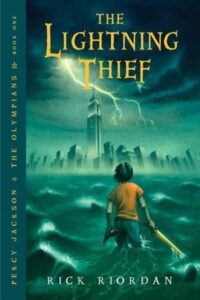 Summary: A series of diverse essays about Ender’s Game, from leadership and military applications to how it has impacted children’s literature and a lot in between.
Summary: A series of diverse essays about Ender’s Game, from leadership and military applications to how it has impacted children’s literature and a lot in between.
There are very few books that I am intimately familiar enough to read a series of 13 essays and a number of Q & A’s from the author and really be engaged throughout. I have a review of the variations of the Ender’s Game story over the years (and I should update that now that I have seen the movie), a full review of the audio play version and a review of the most of rest of the books of the series. I am pretty sure I have read Ender’s Game in one version or another at least a dozen times. (Also Emily Flury has a review of the movie.)
I think unquestionably, Ender’s Game is Orson Scott Card’s best book. I have read most of the rest of Card’s book looking for a book to equal it, and while I really enjoy many of his books, none have resonated with me nearly as much.
Ender’s Game is the story of Ender Wiggins, initially a six year old boy that goes to Battle School to train as a soldier. The Earth has been attacked twice by the Formics (or Buggers depending on which version you are reading). And now soldiers are being trained from childhood to win the next war.
This is the first book I really adored and from the essays, it is clear I am not alone. There are three different types of essays here. Essays on leadership and military, essays on writing or literature and essays on cultural impact. This is not a book for anyone that has not read (and loved) the book. This is a book for not only the fan, but the fan who enjoys geeking out (and listening to others geek out) about minutia of plots points and how they felt when they read it.
 Takeaway: Fun young adult fantasy novel. There are some serious themes, but they are written in a way that is appropriate for 11 and up.
Takeaway: Fun young adult fantasy novel. There are some serious themes, but they are written in a way that is appropriate for 11 and up.






